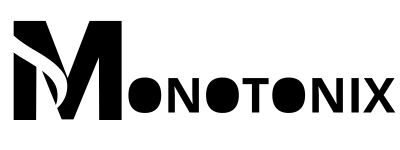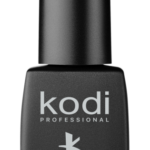Are you passionate about helping others reach their full potential? Do you find the human mind fascinating and want to leverage this interest in a meaningful career? If so, the INLP Center offers the perfect fusion of Neuro-Linguistic Programming (NLP) and life coach training to kickstart or elevate your coaching career.
In this comprehensive guide, we will explore how NLP can transform your coaching skills, the advantages of obtaining an online certification, and the powerful integration of psychology with coaching. Whether you’re an aspiring coach, a psychology enthusiast, or an online learner, you’ll find valuable insights that will help you make informed decisions about your career path.
What is NLP and Why It Matters in Coaching
Neuro-Linguistic Programming (NLP) is a psychological approach that involves understanding and changing human behavior patterns. By studying successful individuals’ language and thought processes, NLP provides tools to replicate those behaviors and achieve similar outcomes.
For coaches, NLP offers a rich array of techniques to enhance communication, break down mental barriers, and foster personal growth. Understanding NLP can significantly amplify your effectiveness as a coach, making you an invaluable resource for your clients.
Enhancing Communication Skills with NLP
Good communication is the backbone of effective coaching. NLP techniques can help you:
- Improve Active Listening: Learn to fully engage with your clients, understanding both their verbal and non-verbal cues.
- Build Rapport Quickly: Use mirroring and matching techniques to create an immediate connection.
- Ask Powerful Questions: Formulate questions that challenge your clients’ perspectives and encourage deep reflection.
Facilitating Personal and Professional Growth
NLP equips coaches with tools to guide clients through personal and professional development. Here’s how:
- Goal Setting: Teach clients to set clear, achievable goals using the SMART criteria (Specific, Measurable, Achievable, Relevant, Time-bound).
- Motivation Strategies: Utilize NLP techniques like anchoring to help clients stay motivated.
- Behavior Change: Help clients replace unproductive habits with positive behaviors through techniques like pattern interruption and reframing.
Overcoming Limiting Beliefs and Fears
Limiting beliefs can hinder progress. NLP provides strategies to overcome these barriers:
- Reframing: Change the way clients perceive their limitations by altering the context or meaning of their beliefs.
- Visualization: Use guided imagery to help clients envision success and reduce anxiety.
- Anchoring: Establish positive emotional states that clients can trigger in challenging situations.
The Advantages of Online Certification
In today’s digital age, obtaining a life coach certification online has become increasingly popular. The INLP Center offers a robust online program that provides numerous benefits.
Flexibility and Accessibility
Online certification programs offer unparalleled flexibility:
- Self-Paced Learning: Study at your own pace, fitting your education around your lifestyle.
- Global Access: Learn from anywhere in the world, eliminating geographical constraints.
- 24/7 Availability: Access course materials anytime, allowing you to learn when it suits you best.
Cost-Effectiveness
Online courses are often more affordable than traditional classroom settings:
- Lower Tuition Fees: Reduced overhead costs result in lower tuition fees.
- No Commuting Costs: Save money on transportation and accommodation.
- Work While You Learn: Maintain your current job while studying, minimizing financial strain.
High-Quality Education
Online programs like those offered by the INLP Center provide top-notch education:
- Expert Instructors: Learn from experienced professionals who are leaders in their fields.
- Comprehensive Curriculum: Cover all essential aspects of NLP and coaching.
- Interactive Learning: Participate in webinars, forums, and live sessions for an engaging learning experience.
Integrating Psychology with Coaching Skills
Combining psychology with coaching enhances your ability to understand and assist your clients. The INLP Center’s program emphasizes this integration.
Understanding Human Behavior
A solid grasp of psychological principles helps you decode your clients’ actions and reactions:
- Behavioral Patterns: Recognize and interpret recurring behaviors.
- Cognitive Processes: Understand how thoughts influence emotions and actions.
- Emotional Intelligence: Develop empathy and manage interpersonal relationships judiciously.
Assessing Clients’ Needs
Effective coaches must accurately assess their clients’ needs:
- Initial Assessments: Conduct thorough intake sessions to understand clients’ backgrounds and objectives.
- Ongoing Evaluations: Regularly monitor progress and adjust coaching strategies as needed.
- Feedback Mechanisms: Implement feedback loops to gather client insights and improve your coaching methods.
Applying NLP Techniques
Integrate NLP techniques seamlessly into your coaching practice:
- Language Patterns: Use Milton and Meta models to explore and expand clients’ thought processes.
- Submodalities: Help clients alter their perceptions and experiences by changing the properties of their inner images and sounds.
- Timeline Therapy: Assist clients in resolving past issues and planning future goals.
Conclusion
Neuro-Linguistic Programming offers a treasure trove of techniques that can enhance your coaching practice, while online certification provides the flexibility and accessibility needed in today’s fast-paced world. By integrating psychology with your coaching skills, you can offer a more comprehensive and effective service to your clients.
Ready to transform your coaching career? Explore the INLP Center’s online courses and certification programs today and take the first step towards becoming a highly skilled and sought-after coach.











